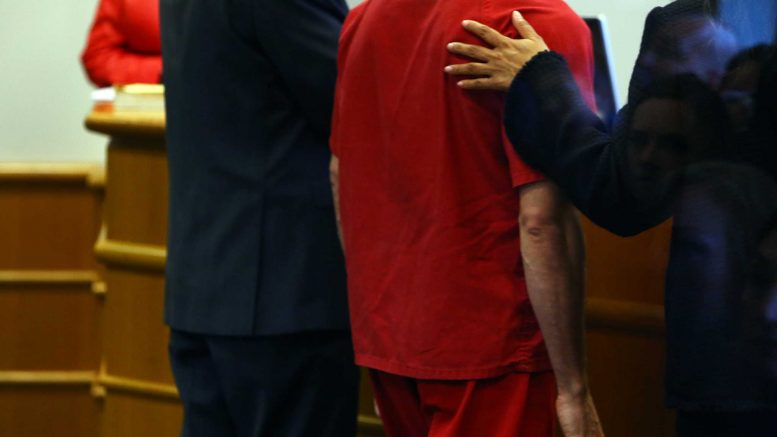King County’s paltry pay for people serving on jury duty discriminates against low-income residents, namely those of color, according to a class-action lawsuit filed Monday.
For defendants to be tried by a jury of their true peers, the lawsuit argues, all residents must have the chance to serve as a juror without sacrificing income.
And the attorneys bringing the suit hope the complaint will ultimately shape state law by eventually advancing to the state Supreme Court.
“The only way to effectuate the change is through the state Supreme Court,” said Jeffrey Needle, one of the two attorneys who filed the lawsuit. “We believe that, one way or another, this case will go to the state Supreme Court and the issue will be decided there.”
Juror payment is dictated by state law, which directs that jurors in county courts are paid $10 to $25 per day, plus travel expenses.
A 2008 study showed that 17 states pay lower daily juror fees than Washington, but the state’s rank drops as trial time increases. For a 10-day trial, only three states pay less than Washington.
King County pays the minimum — $10 per day — a figure that hasn’t changed since 1959, when $10 had the modern-day buying power of $82.56.
Compare that to a minimum-wage worker in Seattle making $104 in an eight-hour day or $75.76 statewide, according to the state Labor and Industries department.
That, according to the complaint, eliminates potential jurors who aren’t paid by their employers for jury leave, disproportionately affecting lower-income residents and people of color. Those people often seek economic hardship exemptions when they receive a jury summons.
Instead of a per diem that may not cover parking or lunch in King County, the suit argues, jurors need to be paid at least minimum wage for their time.
“I think it’s appalling,” Needle said. “It’s obvious that there are very few people of color who respond or show up on juries these days.”
Not only does it affect people who might want to serve on a jury if they could afford to, but it forces defendants to be tried by juries who are mostly white and upper-middle class, the lawsuit argues. That, Needle said, deprives defendants of the right to be tried by a jury of representative peers.
“We feel very, very colorfully that a jury and the right to a jury trial is a very fundamental component of American democracy,” Needle said, speaking for himself and co-counsel Toby Marshall. “It’s direct and immediate social justice. … We think the neglect is shameful. Something really needs to be done.”
The lawsuit cites several studies and case law showing the benefit of diverse juries.
“Diversity in the jury venire (panel) is necessary to a properly functioning jury system,” the complaint reads. “When the jury is drawn from a fair cross-section of the community, the quality and impartiality of the jury’s decision making is improved, and the jury’s political legitimacy as a democratically inclusive institution is enhanced.”
Needle and Marshall say studies show jury diversity improves the public’s perception of the trial’s legitimacy and that diverse juries take more time to deliberate a case and consider more viewpoints than all-white juries, leading to fairer trials.
With the exception of age, income has been found to be a more important arbiter of a juror’s opinion than race, gender or occupation, the lawsuit also cites. However, juries cannot be socioeconomically diverse if King County expects lower-income jurors to take a financial loss.
King County United Way indicates that in 2013, the median annual household income was $36,150 for black people; $42,526 for American Indian and Alaska-Native residents; $45,626 for Hispanic and Latino residents; and more than $75,000 for white people.
Meanwhile, a 2006 survey of King County jurors showed that black people comprise 6 percent of the county’s population, but made up only 3 percent of the jury pool. Hispanic people made up 7 percent of the population, but only 2 percent of the jury pool. White people comprised 86 percent of the jury pool, despite constituting 74 percent of the county’s population.
Needle recalled a jury trial in June in which he represented 23 East African residents suing a company for racial retaliation. Out of the 60 people who showed up for jury selection, only one was black and that person didn’t ultimately make it on the jury.
Though Needle won the case, “that doesn’t really mean that it was fair,” he said.
“We regularly come up against this issue,” said Ann Benson, senior directing attorney at the Washington Defenders Association. “Even before a defendant steps into a courtroom, there are forces at work that affect whether he or she will get a fair trial.”
“What we’re looking at here is that this is a much larger, systemic issue than any one defender can address in the context of a particular case,” she added.
The Washington State Jury Commission issued a report in 1999 after performing a broad study indicating that low juror compensation suppressed young people and people of color from serving. Among its several recommendations, it indicated the “highest priority” was to increase compensation for jurors.
That was 17 years ago.
“It’s very difficult for people who are making minimum wage or people who are low-income to be able to take off two days, two weeks, two months when they’re not being compensated for being on the jury,” Benson said.
King County Superior Court Judge Susan Craighead, who oversees jury matters, declined to comment on the specifics of the lawsuit, but maintained that King County follows state law in jury payment, as do Washington’s other 38 counties.
However, the lawsuit argues that the $10-per-day payment violates Washington’s Minimum Wage Act because jurors are essentially temporary employees of the county.
A 2008 study detailed a pilot program in which jurors were paid $60 per day in Clark County, Franklin County and the city of Des Moines for a 12-month period.
The study indicated that jury participation declined in Des Moines, remained unchanged in Franklin County and slightly increased in Clark County. It also claimed the demographics of those who did respond to summonses was largely unmoved during that time.
However, it also pointed out that only one of 12 people who defied a summons was aware of the pay increase.
Toby Marshall, co-counsel on the lawsuit, argued that study examined too short a time period and too small of a population sample to yield reliable results. Furthermore, the temporary pay bump was not well-publicized, he argues.
The one jurisdiction that saw an increase in participation was by far more populous than the other two, he also pointed out.
Marshall and Needle hope this lawsuit will accomplish what legislators have failed to do: Change state law in how jurors are paid for their service.
Meanwhile, Benson hopes a change in compensation will lead to fairer trials.
“The jury pool and jury selection is one of the places where these two significant currents of race and poverty come together to deny people their right to a fair trial,” she said. “It’s really hard to think that you’re meeting the constitutional requirement of a right to an impartial jury.”
Source: www.seattlepi.com





Be the first to comment on "Lawsuit: Low Juror Pay Means More White, Upper-Income Juries in King County"